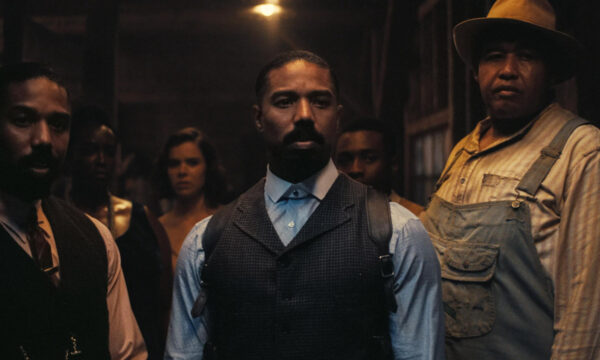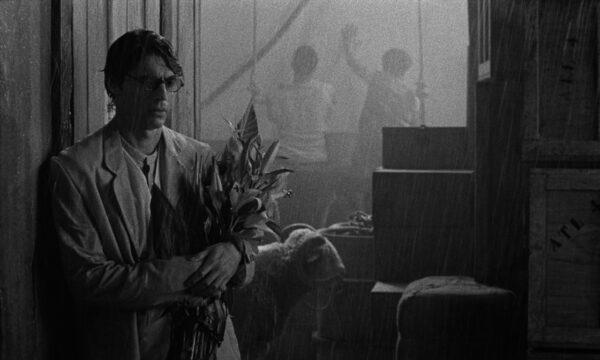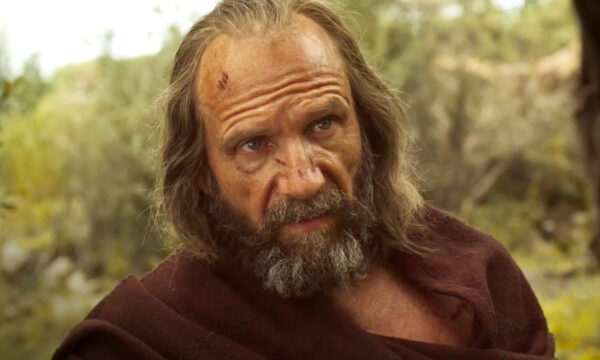Here Awhile

The world is a lonely place to suffer a terminal illness without company, even more so when you’ve spent countless years away from those you love against your will. For Anna (Anna Camp), the concept of leaving this world sooner than planned is a reality, her cancer proving too aggressive to control. Estranged from her family because of her sexual orientation, she finally returns to Portland, Oregon and her brother Michael (Stephen Strait) to make up for lost time and for time that will be lost in the future. Anna, along with her partners and friends, completes her final wishes, making peace with their father’s spirit and easing her pain as she hurtles towards her life’s conclusion — something she is determined to bring about in a manner of her own choosing.
Tim True’s directorial debut, Here Awhile explores a multitude of themes and personalities, but primarily places its attention firmly on a topic that is rarely explored, even in modern cinema. The film argues that dying is indeed a part of life, and therefore we as humans should have a divine right to choose how and when we would like our final moments to be. An uncomfortable concept, “dying with dignity” can only ever be considered honestly when the end is inevitable and visible in the headlights — something that True makes abundantly clear in Anna. It’s a notion that stirs significant political debate, and pressure is poured over the movie to powerfully hit home its side of the argument.
It is here that the main flaw of the film resides: despite its adventurous subject matter, the product is the opposite, and very predictable in its direction. The pacing is a little too slow, providing scant entertainment, with only glimpses of shimmering joy-filled moments offering any positive experience in the 85-minute run time. The characters appear as stereotypical archetypes that tick boxes, but some are left with little purpose, despite their potential. The acting is capable, but the roles themselves are fairly underwhelming, aside from Joe Lo Truglio’s autistic Gary, who is the only member of the group to undergo significant growth and transformation. Anna is not portrayed nearly as unwell as someone in her condition would likely be, with her health deteriorating rapidly over the course of a very short period.
This unsatisfying characterisation is ultimately frustrating, particularly in the context of momentary flashbacks to distant memories of the siblings, which allow the viewer to only begin to understand how close they once were. This leads the viewer to question how the film’s conclusion can be so calm, and raises serious questions about the necessity of the characters’ actions under the given circumstances.
In the second act, the cast do go on a journey together to spread their father’s ashes, but as individuals their personal story arcs remain seriously lacking. A very similar scenario was explored in the recently released Roger Michell film Blackbird, which also explores death with dignity. While Michell’s work has flaws of its own, it allows for greater character development and deeper conflicts across a broader cast than Here Awhile, and brings a devastating conclusion that is undeniably moving. With Tim True’s film, the debate it is trying to spark is clear, but aside from some strong cast performances, the simple fact is there are other movies that explore the topic more effectively.
Guy Lambert
Here Awhile is released digitally on demand on 12th October 2020.
Watch the trailer for Here Awhile here:


























Facebook
Twitter
Instagram
YouTube
RSS